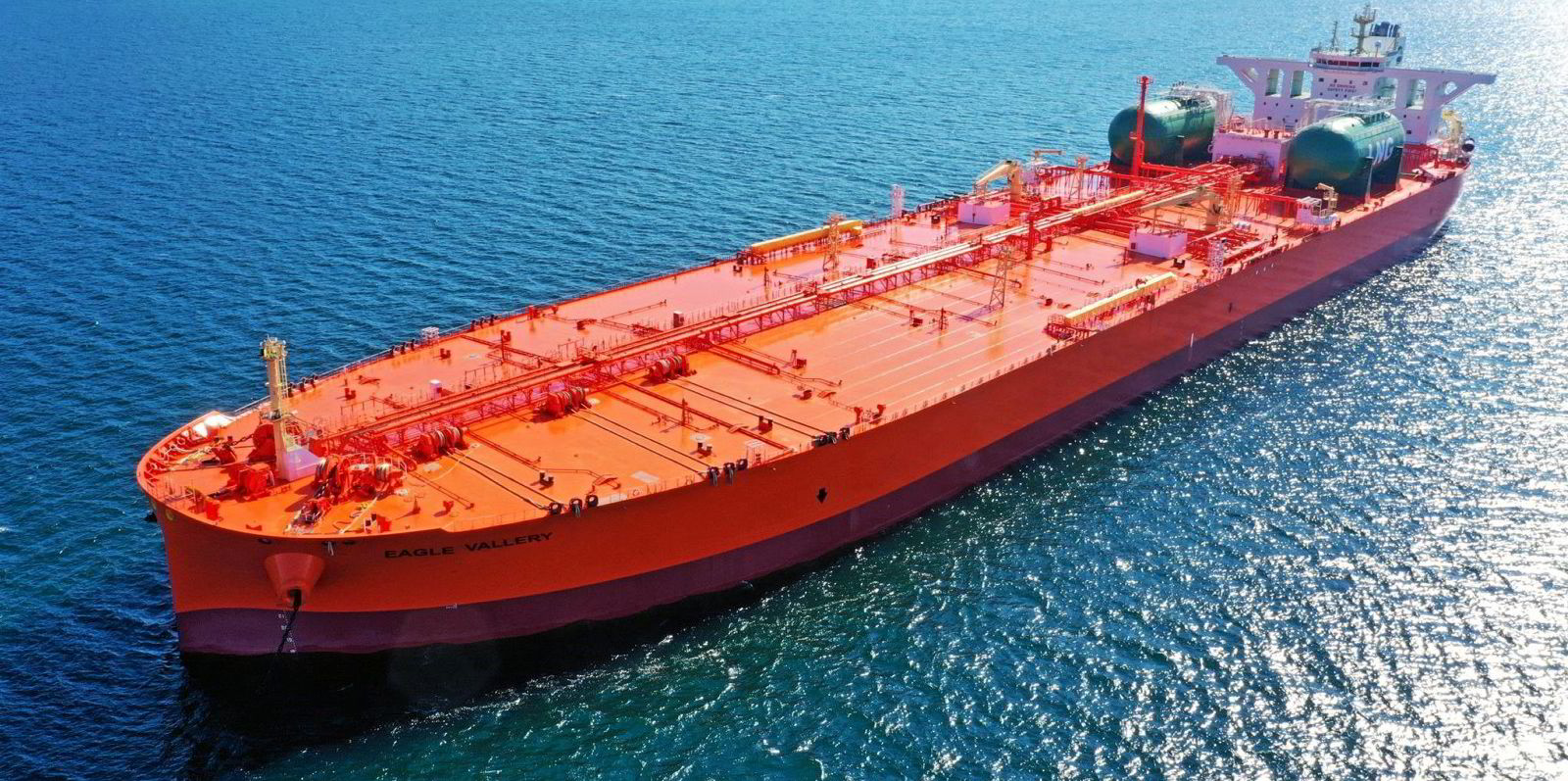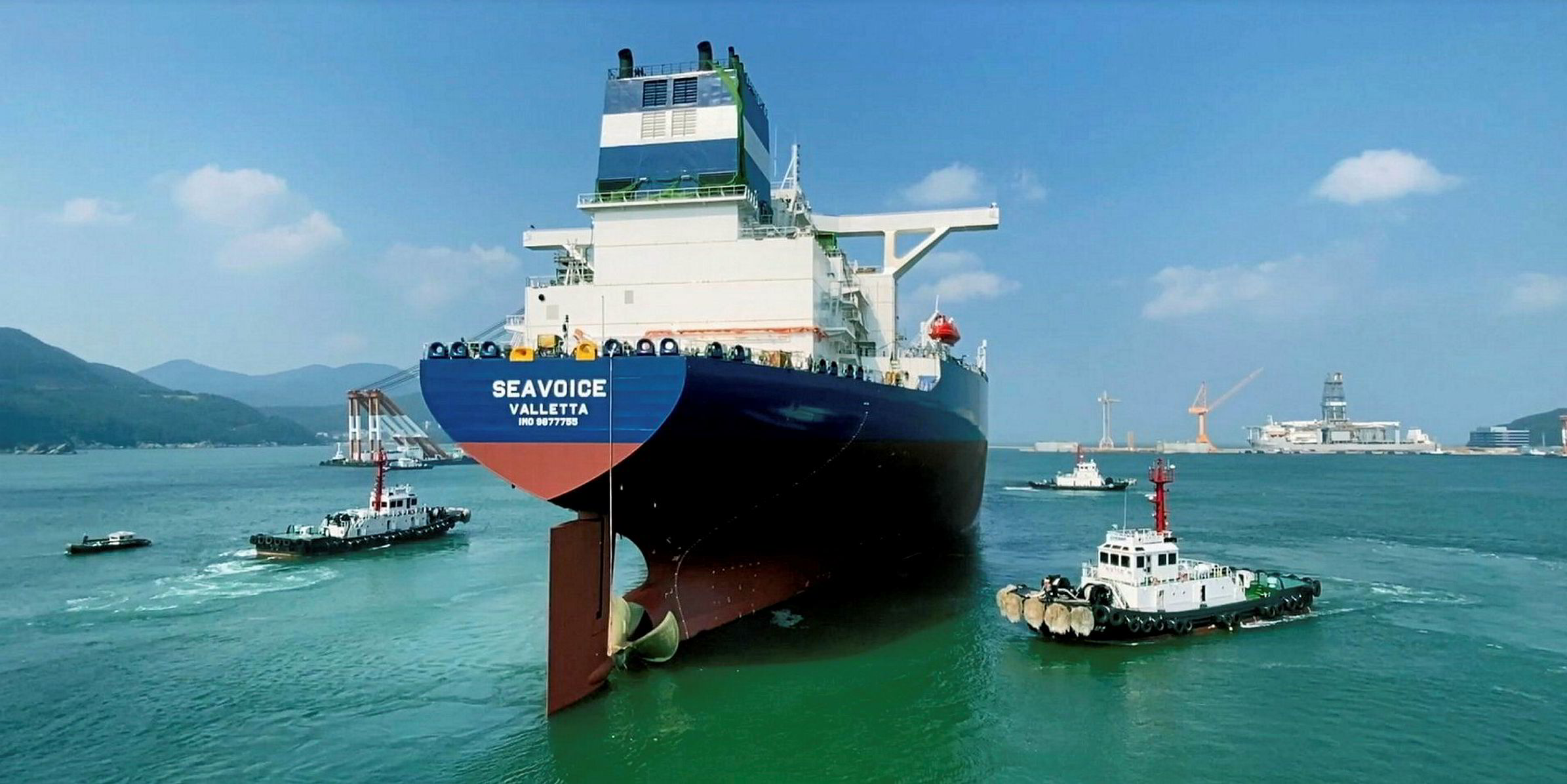Tanker and bulker values continue to rise, despite shipping stocks falling in line with the broader market, according to Clarksons Platou Securities.
The investment bank said shipbrokers have hiked assessments for dry and wet vessels even further this year, with a newly delivered VLCC now costing $102m, up $3m.
Five-year-old VLCCs have also been assessed $3m up at $77m.
Day rates remain relatively poor at below $10,000, but analysts Frode Morkedal and Even Kolsgaard are positive on the outlook due to low fleet growth estimated at 1.2% this year and just 0.8% in 2023. No new VLCCs are on order for 2024.
New carbon regulations are expected to reduce sailing speeds and thus effective fleet growth even further, starting next year, Clarksons Platou said, forecasting VLCC rates to reach $50,000 per day in 2023.
This would mean a likely price of $115m for a VLCC resale, a 13% upside from now.
In dry bulk, brokers value a capesize resale at $62.5m, which Clarksons Platou said could rise to $70m, given the level of one-year time charters currently.
And last week, capesize spot earnings increased by 36% to nearly $33,000 per day.
Big potential for gains
“We believe there is still significant upside potential in shipping stocks,” the analysts said.
Clarksons Platou noted that while its shipping share index dropped 2% in the week ending 13 May, matching the S&P 500 Index, product tanker companies saw gains.
Danish owner Torm put on 12% after announcing a new dividend policy that essentially means a full pay-out of free cash flow above a certain minimum cash threshold.
Product tanker companies are making large profits with rates in the $40,000 to $70,000 per day range, “and now investors will benefit directly from capital return”, said Morkedal and Kolsgaard.
“Despite Chinese lockdowns, freight rates for dry bulk, product and chemical tankers, LPG and LNG carriers continue to rise. Although crude tanker earnings remain low, ship values are rising,” the analysts said.
“We anticipate that asset inflation will continue to be a key support factor for shipping stocks.”(Copyright)





